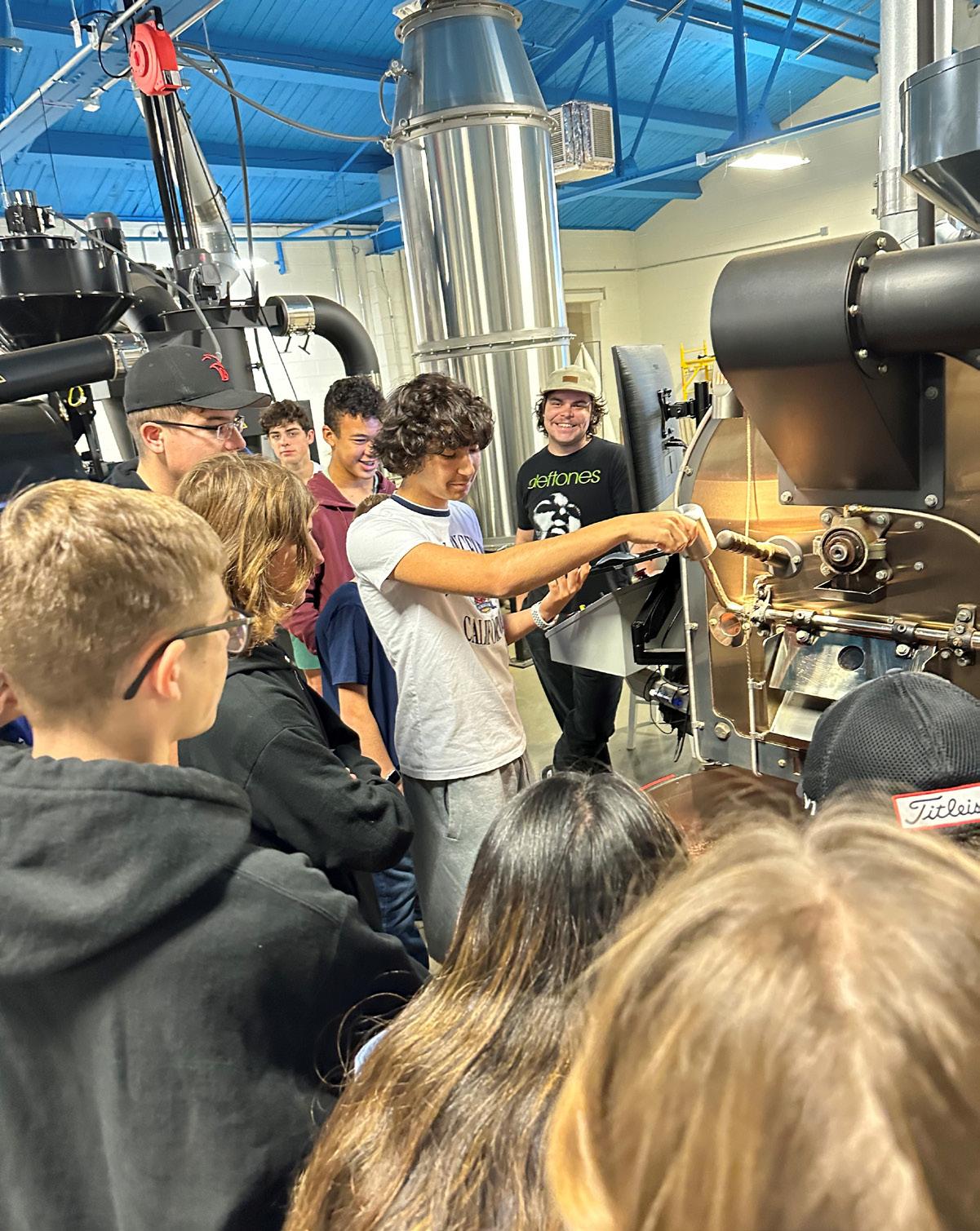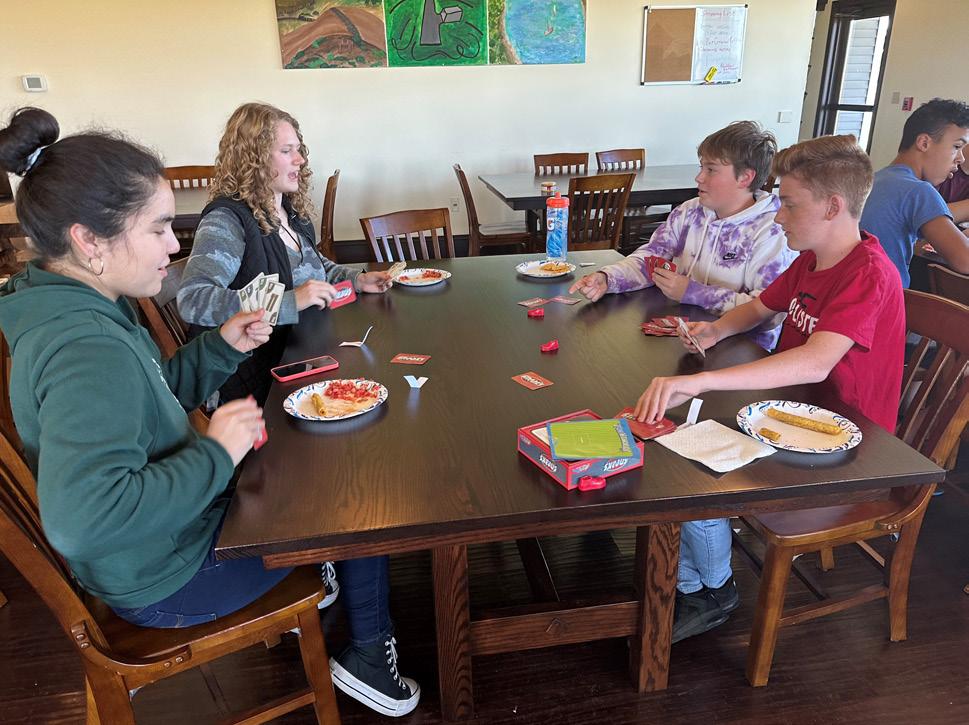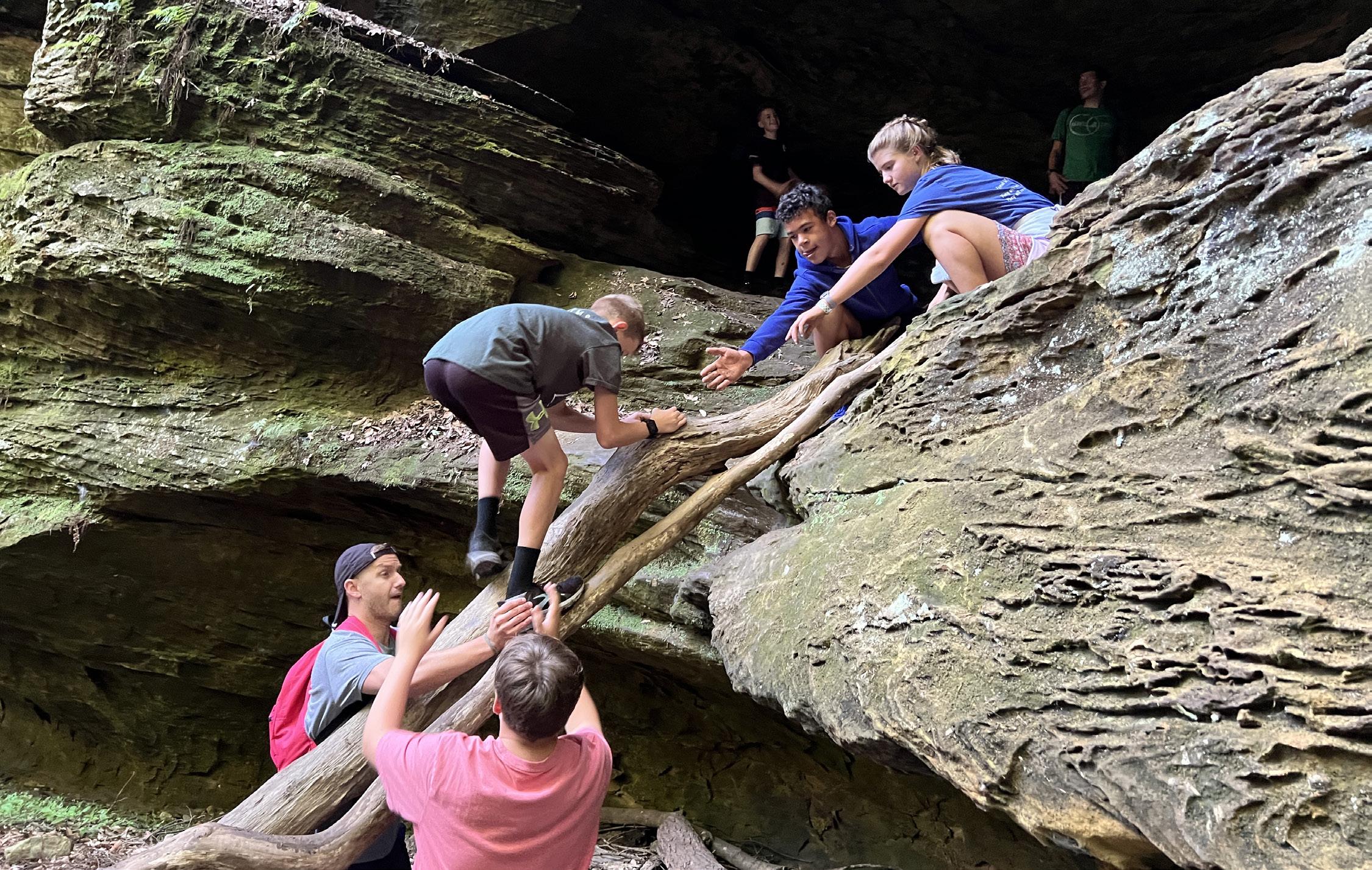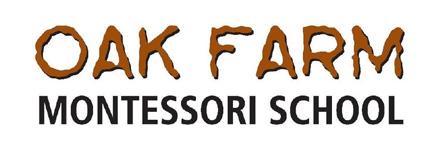Oak Farm Montessori January



 Kim davidson, Strategic partnership director
Kim davidson, Strategic partnership director
As parents, we have all witnessed the pain and celebration of the sensitive periods for learning that our children experience. The struggle and frustration that gives way to the great “aha moments’’ in their development are truly celebrations. Much like a Montessori student, our school goes through similar phases. In the nonprofit world, these are referred to as Nonprofit Lifecycles stages. There are six non profit stages: idea, start-up, growth, maturity, decline, turnaround and terminal. Over the past few years, our administrative team has learned more about these stages as they relate to the organization’s growth and development. Currently, OFMS is in the growth stage and is striving for the mature stage. The growth stage is best defined as a time where the programs being offered outpace the processes of the organization. With this knowledge in hand, our leadership team has worked to provide quality customer service for our families and others; in a way that does not jeopardize the needs of the students and faculty.
As Oak Farm Montessori continues to grow and develop to meet the needs of our community, this can often seem like a lot of moments of frustration before the big “aha.” Some questions include: How do we keep the small community feel that makes our school a second home to so many? Why do we need to raise funds for operating when we have on-going capital growth? Or, what happens if the Dekko Foundation decides to no longer support our school? Each of these questions is valid, but sometimes the answers do not seem to align. The question that falls within my area of responsibility is, “Why do we need to raise funds for operating?” Since the beginning, the Dekko Foundation has been supportive of the work at OFMS. Their commitment to our school has been two-fold. First, to provide operational support to ensure our founder’s vision of accessible and affordable choice in Northeast Indiana continues to be available. Secondly, to allow the school to expand and meet the needs of the students and growth, without being a distraction to the administration. With secured capital funding, the administration of the school can focus on the implementation of the Montessori curriculum and meeting the needs of the students we serve.
While the Foundation has proven to be fully supportive of OFMS, they also have a responsibility to fulfill their mission in a way that aligns with the founder’s principles and values. The Foundation’s founder, Chet Dekko, lived by the proverb, “You give a man a fish and he will eat for the day, teach him how to fish and you feed him for a lifetime.” With this in mind, the Dekko Foundation has simultaneously challenged OFMS to increase its self-sufficiency. Each year, our school continues to meet the benchmark set through the Operational Grant to reduce the percentage of the Dekko Foundation grant to the total operating budget. This particular benchmark is why we fundraise at our school. Having a more balanced approach to the school’s income is a goal that the Dekko Foundation has with all of the nonprofits they support. Since 2010 we have reduced the Foundation operation support from 72% to 55%. The remaining 45% of our income is through tuition, free, grants, fundraising and investment income. This success could not be possible without the support that we have received from our many donors. The donors represent our OFMS community; as well as, other businesses in the northeast Indiana region.
At Oak Farm Montessori School, our partnership with the Dekko Foundation has allowed us to grow and meet the needs of our community, while keeping the focus on our mission. As we continue through the evolution of a mature non-profit, there will be times of frustration and angst. However, like our children experience, there will also be great celebration as we continue to develop processes that move the school forward to support our students, faculty and families. If you would like to know more about opportunities to support the school, please do not hesitate to reach out to Kim Davidson, Strategic Partnership Director.










Language development begins in utero and continues to develop throughout the entire life span! The sensitive period for language development is from 7 months in utero up to 6 years of age. Language development includes not only spoken language, but also written language and reading. While still in the womb, studies have shown children are listening and learning voices. At birth, they startle to sounds and learn to differentiate voices and tones. At 4 months, they begin to play around with different tones and even some speech-like babbles (i.e. gi, me, ba).
The sensitive period for learning to speak is from 7 months to 2.5-3 years of age. At 7 months, things start clicking! Children begin to understand common words such as “mama, dada, milk, train”, follow simple directions such as “come here” and “up”, and they recognize their name. Babbles start to sound more like words (i.e. meme, gigigi, bababa) and around one year, first words emerge.
Between one and two years of age, children are beginning to show us that they have been listening and learning what words mean. Up to this point they have been absorbing all of the things said to them, and around them, and now they want to try it all out. They begin to follow more directions and answer some questions. Children at this age often “talk” so much it sounds as though they are speaking another language. Two years of age is often when we notice an explosion of vocabulary. They go from 50 words at 18 months, to 200-300 words at two years of age. Between two and three years, they continue to add to their vocabulary and begin putting together 3-4 word sentences. These sentences are beginning to take shape and follow grammatical rules. As they practice with words and sentences, they begin to become more clear (but still only understood 50-75% of the time at 3 years). After three years, spoken language continues to develop. Children begin to develop their sounds so that they are understood about 90% of the time by age five. All sounds are typically clear by age six. The environment we prepare for children is speaking to them in clear language, reading to them, and allowing them to speak their needs and not anticipating their needs too much so that there is no need for the child to try to communicate verbally. Play around with sounds, babble, make animal sounds, and sing. Talk to your child as you do things and go places. For example, when driving or walking, point to and name what you see. Say things like, “I see a dog. The dog says ‘woof.’ That was a big dog. That dog was brown.” When your child begins to speak words, add to their words. For example, if your child says “car”, you say, “You’re right! That is a big car.”
Other aspects of language development, such as reading and writing, are also included in this sensitive period. The sensitive period for learning how to write is from 3.5 to 4.5 years of age. For reading, a child is learning intensely from 4.5 to 5.5. From the basis of writing they can learn to read. As early as 3.5 years, children begin to prepare to read. They start to show awareness of rhyming words and letter sounds. Authors of children’s books know this is a sensitive period for reading and have included rhyming and alliteration (i.e. words that begin with the same sound as “Jack and the Beanstalk’s” famous, “Fee Fi Fo Fum”) in their books!
For more information on how children learn to talk, check out this resource: https://www.asha.org/ public/speech/development/chart/
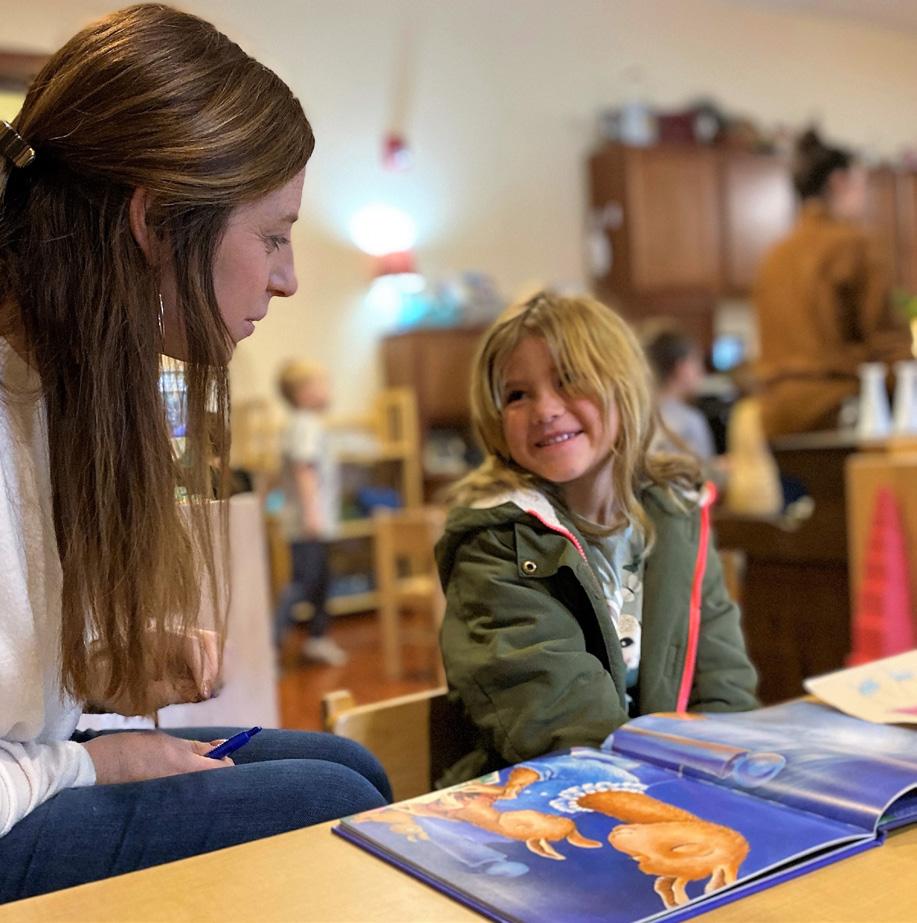
People tend to think of sensitive periods for learning as only being in early childhood: senses, language, reading, and writing. However, adolescence also contains important sensitive periods. This is an important time for young adults to learn the complexities of social interactions and skills fostering their own economic independence.
Oak Farm Montessori High School (OFMHS) provides many opportunities for students to interact with each other both in and out of the classroom. In class, students work together on projects and experiments, helping and learning from each other. They also work together to take care of their environment, completing chores each day. They work on their communication skills as they delegate tasks in their group and make sure each member is contributing what is needed. Outside of the classroom, students bond together on their Fall Camping trip, intersessions, and other outside opportunities. They depend on each other and give each other support as they complete adventurous activities and take care of themselves, whether that means putting up their own tent or cooking their own dinner. OFMHS also hosts game nights and dances to give students the opportunity to interact in a purely fun and social manner.
All of these activities provide students practice in navigating social interactions and situations as well as a means for developing deep social bonds between students that will last well beyond high school.
We have rigorous academic standards, but also focus on enabling students to develop skills that will lead them to economic independence. Students have the opportunity to participate in four different pathways: Bike Shop, Coffee Shop, Farm & Animal Sciences, and InnoLab. Freshmen experience each pathway, one per quarter, in order for them to explore their interests and aptitudes and gain skills specific to each pathway. Sophomores choose a business for which to create an operating plan and then run that business to learn how to create economic independence. Through this process, students learn the skills necessary for their own future economic independence, such as writing a business plan, communicating with customers and vendors, managing and teaching skills to workers, researching their market, developing pricing, and managing spreadsheets. Oak Farm Montessori High School continues to teach to the whole child, giving them the tools to be successful in all areas of life in adolescence and beyond.

